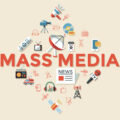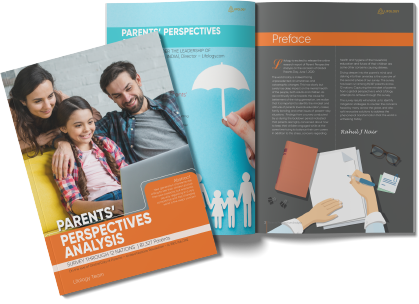Sheetal Lal
HR Manager, Serck Services, Gulf Region
Ever wondered how companies attract top talent, foster a thriving workplace culture, and navigate complex labor laws? The answer lies in the dynamic world of Human Resources (HR). If you’re a problem-solver, a people person, and a strategic thinker, a career in HR could be your calling.
Human Resources isn’t just about paperwork and payroll. It’s the backbone of any successful organization, shaping company culture, driving employee engagement, and ensuring legal compliance. If you’re ready to step into a role where your impact is felt across the entire company, read on to discover the rewarding career paths HR has to offer.
My Journey as HR Manager in an MNC
As the current HR Manager at Serck Services Gulf, a UK-headquartered subsidiary of the Unipart Group, I bring over a decade of comprehensive HR experience in the Middle East to the table. My career has spanned diverse industries across the region, affording me a deep understanding of local labor laws and cultural nuances.
My journey began as an HR Officer, where I discovered a passion for the multifaceted world of human resources. Early on, I specialized in compensation and benefits, gaining valuable hands-on experience by independently managing payroll for over 500 employees across two business units. This early success, coupled with the unwavering support of mentors, instilled in me the confidence to embrace increasingly complex challenges and leadership roles.
My commitment to professional growth led me to pursue new opportunities within a multinational corporation (MNC). This transition marked a significant turning point in my career, opening doors to global HR practices and innovative approaches to talent management.
Transitioning from a mid-sized company to the multinational corporate landscape presented an initial learning curve. The cultural shift, coupled with the expanded scope of responsibilities, required a period of adjustment. My role encompassed a broad spectrum of HR functions, including policy development, employee engagement initiatives, recruitment, onboarding, offboarding, performance management, and employee development. Each facet demanded meticulous attention and timely execution. However, through effective organization, proactive planning, and a solutions-oriented mindset, I successfully navigated these challenges, consistently delivering positive outcomes for the organization.
I’m grateful for the mentorship and guidance I’ve received from leaders throughout my career. Their support has been instrumental in shaping my professional trajectory and empowering me to pursue my goals within the HR field.
Embracing Global HR: The Advantages of Working in a Multinational Corporation
The transition to an MNC was a deliberate choice, driven by a desire for broader exposure to global HR practices. Working within a multinational environment has exceeded my expectations, offering a wealth of enriching experiences. Interacting with a diverse, global workforce has broadened my cultural understanding and enriched my perspective on talent management. The opportunity to engage with well-aligned HR policies and practices across different regions has been invaluable in developing a comprehensive skill set.
Beyond cultural exposure, MNCs often lead the way in adopting innovative HR technologies. Working with cutting-edge HRMS, software, and digital tools has streamlined processes and elevated the employee experience. Additionally, MNCs typically prioritize employee development, offering ample learning opportunities and promoting a healthy work-life balance. These factors contribute to a dynamic and fulfilling career path within the HR field. While the challenges are real, the rewards of working in an MNC are substantial, fostering continuous growth and development as an HR professional.
Regardless of the organization’s size or industry, the core of HR remains the same: a commitment to continuous learning, problem-solving, and creating value for all stakeholders.
Essential Skills for Thriving in the Modern HR Landscape
To excel in today’s dynamic HR field, professionals need a diverse skill set that combines interpersonal strengths with technical expertise. Here’s a breakdown of the key areas to focus on:
- Mastering communication:
Mastering communication is the cornerstone of effective HR, as it underpins every interaction, from one-on-one conversations to company-wide announcements. Active listening allows HR professionals to truly understand employee concerns and aspirations, fostering trust and open dialogue. Clear and concise verbal communication ensures that policies, procedures, and expectations are easily understood by all. Demonstrating empathy in communication shows genuine care for employee well-being, creating a supportive and positive work environment. Strong written communication skills enable the crafting of professional emails, reports, and presentations that effectively convey information. Finally, the ability to mediate disputes and facilitate constructive conversations is crucial for conflict resolution and maintaining a harmonious workplace.
- Investing in Education and Certifications:
Investing in your education and professional development is crucial for a successful HR career. A formal degree in Human Resources Management, Business Administration, or a related field provides a strong theoretical foundation, while professional certifications like PHR, SPHR, SHRM-CP, or SHRM-SCP validate your expertise and commitment to the field. However, learning doesn’t stop after graduation. Continuous learning through workshops, conferences, online courses, and professional development programs is essential for staying abreast of emerging trends, best practices, and legal updates in the ever-evolving HR landscape.
- Staying Ahead of HR Trends:
Staying ahead of the curve in HR requires a multi-pronged approach. Regularly reading industry publications such as HR magazines, blogs, and newsletters provides valuable insights into emerging trends, best practices, and legal updates. Networking with fellow HR professionals through conferences, online forums, and informal gatherings fosters knowledge sharing and offers a platform to exchange ideas and experiences.
- Gaining Practical Experience:
Gaining practical experience in HR often involves a combination of seeking out internships to apply theoretical knowledge in real-world settings, starting your career in entry-level positions to build a foundation of practical skills, and seeking guidance from a mentor who can offer invaluable insights and support as you navigate your career path.
- Embracing Technology:
In today’s digital age, embracing technology is crucial for HR professionals to optimize processes and enhance the employee experience. Proficiency in Human Resources Information Systems (HRIS) is essential for managing employee data, payroll, benefits, and performance reviews efficiently. Familiarizing yourself with Applicant Tracking Systems (ATS) can streamline recruitment and hiring, ensuring a smooth candidate experience. Developing data analysis skills empowers HR professionals to extract valuable insights from HR metrics, informing strategic decision-making. Additionally, leveraging social media platforms for employer branding, recruitment marketing, and employee engagement can significantly enhance an organization’s visibility and attract top talent.
Additional Key Skills:
- Problem-solving: The ability to identify and resolve workplace issues effectively.
- Decision-making: Confidence in making sound judgments based on available information.
- Ethical conduct: Maintaining high ethical standards and upholding confidentiality.
- Adaptability: Flexibility and resilience in the face of change
Whether you’re a recent graduate or considering a career change, the field of HR offers diverse paths for those passionate about people, problem-solving, and organizational success. By honing essential skills, embracing lifelong learning, and staying abreast of evolving trends, you can build a fulfilling and impactful career in this dynamic field. Remember, the heart of HR lies in fostering positive change in the workplace – and that’s a mission worth pursuing.








